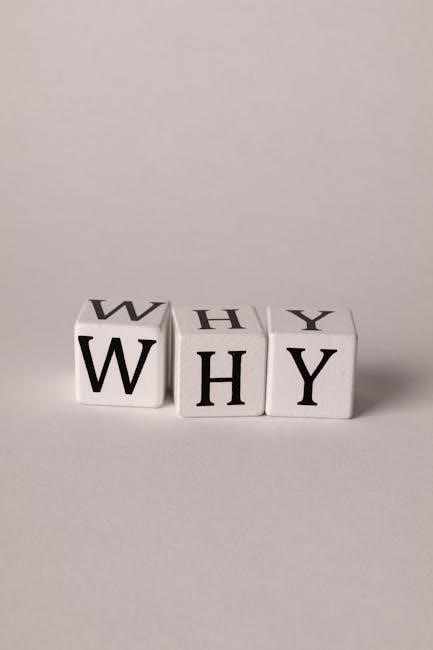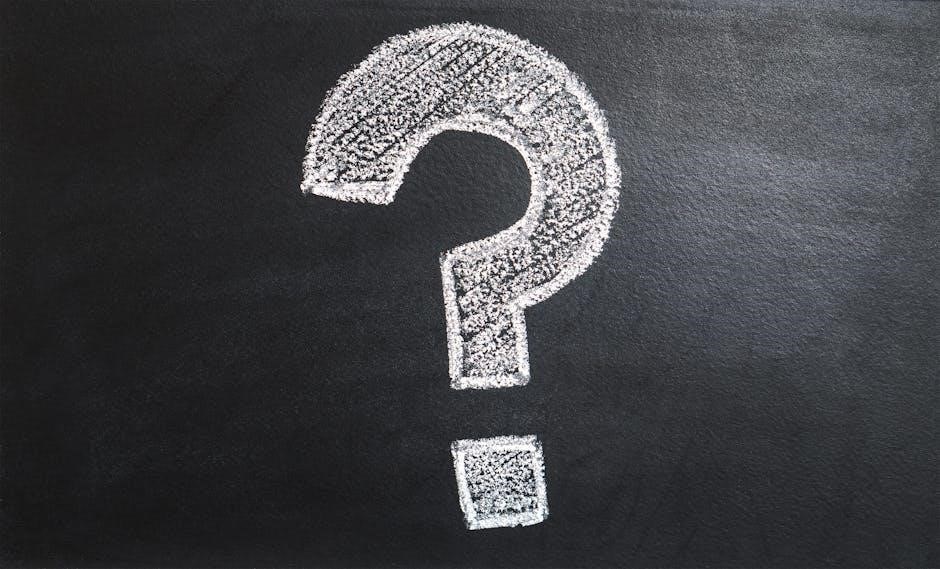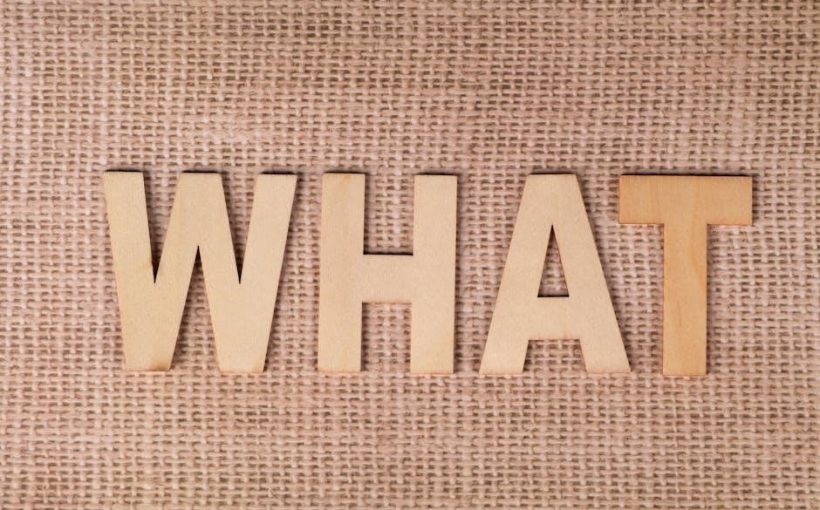WH questions are essential for effective communication, helping learners ask for specific information. Worksheets like wh-questions pdf provide structured exercises to practice forming and answering these questions, suitable for all language levels.
What Are WH Questions?
WH questions are inquiries that begin with question words such as who, what, when, where, why, and how. These questions are designed to gather specific information and require detailed responses rather than simple “yes” or “no” answers. For example, “What is your name?” or “Why did you choose this book?” They are fundamental in language learning as they help learners develop both speaking and listening skills. Worksheets like wh-questions pdf provide structured exercises, such as fill-in-the-blank activities or question formation tasks, to practice these questions effectively. These resources are widely used in classrooms and self-study routines to improve communication skills. They cater to all proficiency levels, making them versatile tools for language acquisition.
Importance of WH Questions in Language Learning
WH questions play a crucial role in language learning as they enhance communication skills and encourage critical thinking. They help learners develop the ability to ask for and understand detailed information, which is essential for meaningful conversations. Mastering WH questions enables students to express curiosity and clarify doubts, fostering active listening and problem-solving abilities. These questions are also vital for real-life interactions, such as asking for directions or discussing events. Worksheets like wh-questions pdf provide structured practice, making it easier for learners to grasp and use these questions effectively. Regular practice with such resources builds confidence and improves overall language proficiency.
Why Use Worksheets for Practicing WH Questions?
Worksheets are an excellent tool for practicing WH questions as they provide structured and focused exercises. They offer a variety of activities, such as fill-in-the-blanks, matching exercises, and question formation tasks, catering to different learning styles. Worksheets like wh-questions pdf are designed to target specific language levels, ensuring learners can progress at their own pace. They also include real-life scenarios, making practice relevant and engaging. Additionally, worksheets allow for both written and oral practice, reinforcing understanding and fluency. Teachers can easily track progress, and learners can review mistakes, making worksheets a practical and effective resource for mastering WH questions.

Types of WH Questions
WH questions include Who, What, When, Where, Why, and How. Each type targets specific information, helping learners practice clear and precise questioning skills in various contexts.
Who Questions
Who questions are used to ask for information about people involved in a situation. They often begin with the word “Who” and are essential for identifying individuals. For example, “Who is your teacher?” or “Who wrote the book?” Worksheets like wh-questions pdf include exercises such as fill-in-the-blank activities and matching games to practice forming and answering Who questions. These exercises help learners understand grammar rules and sentence structure. They also provide real-life scenarios to make learning engaging and practical. By mastering Who questions, learners can improve their communication skills and ask for specific details effectively. These exercises are particularly useful for beginners and intermediate learners.
What Questions
What questions are used to ask for information about things, ideas, or actions. They often begin with the word “What” and are essential for gathering specific details. For example, “What is your name?” or “What do you study?” Worksheets like wh-questions pdf include exercises such as fill-in-the-blank activities and matching games to practice forming and answering What questions. These exercises help learners understand how to structure questions correctly and use the right vocabulary. They also provide opportunities to practice pronunciation and comprehension. By mastering What questions, learners can improve their ability to gather information effectively. These exercises are particularly useful for beginners and intermediate learners, making language learning engaging and practical;
When Questions
When questions are used to ask about time or frequency. They often begin with “When” and are essential for understanding schedules, events, or habits. For example, “When do you usually have breakfast?” or “When is your birthday?” Worksheets like wh-questions pdf include exercises such as matching times with activities and creating questions based on timelines. These activities help learners practice forming grammatically correct questions and understanding responses. They also provide opportunities to use time-related vocabulary and phrases. By mastering When questions, learners can improve their ability to discuss schedules and events effectively. These exercises are particularly useful for learners at intermediate levels, making language practice both engaging and practical.
Where Questions
Where questions focus on location or direction. They often start with “Where” and are crucial for understanding places, movements, or positions. For example, “Where is the library?” or “Where are you going?” Worksheets like wh-questions pdf offer exercises such as labeling maps, identifying locations, and creating questions based on descriptions. These activities enhance learners’ ability to form grammatically correct questions and understand spatial relationships. They also introduce vocabulary related to places and directions. By practicing Where questions, learners improve their communication skills for asking about locations and giving directions. These exercises are ideal for learners at all levels, making language practice both educational and interactive.
Why Questions
Why questions are used to ask for reasons or explanations. They often begin with “Why” and are essential for understanding motivations or causes. For example, “Why did you choose this book?” or “Why is it raining?” Worksheets like wh-questions pdf provide exercises such as filling in the blank with “why,” creating questions from prompts, or matching questions to answers. These activities help learners form grammatically correct questions and understand the context in which they are used. By practicing Why questions, learners improve their ability to inquire about reasons and explanations, enhancing their critical thinking and communication skills. These exercises are particularly useful for developing deeper language comprehension and are suitable for all proficiency levels.
How Questions
How questions are used to ask about methods, conditions, or degrees. They often begin with words like “how” or “how many.” For example, “How do you make this recipe?” or “How many apples are in the basket?” Worksheets like wh-questions pdf offer exercises such as filling in the blank with “how,” creating questions from prompts, or matching questions to answers. These activities help learners understand the structure of how questions and use them effectively in conversations. By practicing how questions, learners improve their ability to inquire about processes, quantities, and descriptions, enhancing their language skills. These exercises are particularly useful for developing clear and precise communication.
Creating Effective WH Questions Worksheets
Designing effective WH questions worksheets involves clear instructions, varied exercises, and engaging visuals. Include activities like fill-in-the-blanks, matching, and creating questions to cater to different learning levels and keep learners motivated.
Design Tips for Engaging Worksheets
Creating engaging WH questions worksheets requires a combination of clear layouts and varied exercises. Use a clean design with readable fonts and ample space for writing. Incorporate visuals like images or charts to make tasks more appealing. Include a mix of question types, such as fill-in-the-blanks, matching exercises, and sentence completion, to cater to different learning styles. Add real-life scenarios to make the questions relatable and context-specific. Consider using color-coding to highlight question words like who, what, where, when, why, and how. Additionally, provide answer keys or examples for self-checking, which helps learners assess their progress independently. These strategies ensure that worksheets are both educational and enjoyable for students of all levels.
Incorporating Real-Life Scenarios
Incorporating real-life scenarios into WH questions worksheets enhances learning by making questions relatable and practical. Use contexts like daily routines, shopping, or workplace interactions to create meaningful exercises. For example, ask, “What time do you usually go to bed?” or “Where did you buy your shoes?” Such questions help learners connect grammar with real-world applications. Include role-play activities or problem-solving tasks that require forming WH questions to gather information. This approach not only improves question formation but also boosts confidence in using English in everyday situations. Scenarios can be tailored to different age groups, ensuring relevance and engagement for all learners. This method makes practice more enjoyable and effective, fostering better retention of language skills.

Using WH Questions Worksheets in the Classroom
WH questions worksheets are invaluable in classrooms, offering structured practice for learners. Teachers can use them to create interactive activities, fostering engagement and effective language skills development.
Step-by-Step Procedure for Teachers
Begin by introducing WH questions, explaining their purpose and structure. Demonstrate how to form questions using words like who, what, when, where, why, and how.
Distribute WH questions worksheets tailored to the class level. Ensure exercises match the students’ language proficiency.
Guide students through the first exercise collectively, providing examples and clarifying doubts.
Allow students to work individually or in pairs to complete the worksheet, encouraging peer discussion.
Conduct a group activity where students ask and answer questions aloud, fostering fluency and confidence.
Review the answers as a class, highlighting common errors and offering corrections.
This structured approach ensures effective practice and reinforces WH question usage in real-life scenarios.
Group Activities and Pair Work
Engage students with interactive group activities and pair work to practice WH questions. Begin with pair work, where students ask and answer questions using worksheets like wh-questions pdf. This fosters individual practice and immediate feedback.
Organize group activities such as role-playing scenarios, where students create and ask WH questions related to real-life topics. Incorporate matching games or question cards to make learning dynamic and fun.
Encourage students to create their own WH questions based on stories or pictures, then share with the class. This collaborative approach enhances fluency and confidence in using WH questions effectively.

Common Mistakes to Avoid

Students often struggle with word order and auxiliary verbs in WH questions. Worksheets like wh-questions pdf highlight typical errors, helping learners correct mistakes effectively and improve accuracy.
Typical Errors in Forming WH Questions
One common mistake is incorrect word order, where the auxiliary verb is misplaced. For example, “When you go store?” instead of “Where do you go?” Another error is omitting the auxiliary verb entirely, such as “What you doing?” instead of “What are you doing?” Additionally, learners often confuse question words, using “where” instead of “when” or “why.” These errors highlight the importance of structured practice. Worksheets like wh-questions pdf provide targeted exercises to address these issues, offering clear examples and corrections to help students form questions accurately. Regular practice with such resources can significantly improve their question-forming skills.
How to Correct Mistakes Effectively
To correct mistakes in WH questions effectively, provide clear examples and visual aids on worksheets. Use charts or diagrams to illustrate correct structures. Include practice exercises like fill-in-the-blank tasks to reinforce learning. Offer immediate feedback by highlighting errors and explaining corrections. Utilize online tools for interactive practice and consider peer review for collaborative learning. Maintain a positive approach with constructive feedback and vary exercises to keep students engaged. These strategies help students understand and correct common errors, improving their WH question formation skills.
WH questions are vital for effective language learning. Worksheets, like wh questions pdf, provide structured practice, helping learners master question formation and improve communication skills successfully.
WH questions are crucial for effective communication, enabling learners to gather specific information. Worksheets, such as wh questions pdf, offer structured exercises to practice forming and answering these questions. They cater to all language levels, from beginners to advanced learners, and cover various question types like who, what, when, where, why, and how. These resources often incorporate real-life scenarios, making learning engaging and practical. Teachers can use them in classrooms with step-by-step procedures, promoting interactive activities like group work. Common mistakes, such as incorrect word order or missing auxiliaries, can be addressed through targeted exercises. Correcting these errors is essential for mastering WH questions effectively. Overall, wh questions pdf worksheets are invaluable tools for developing strong questioning skills in any language learner.
